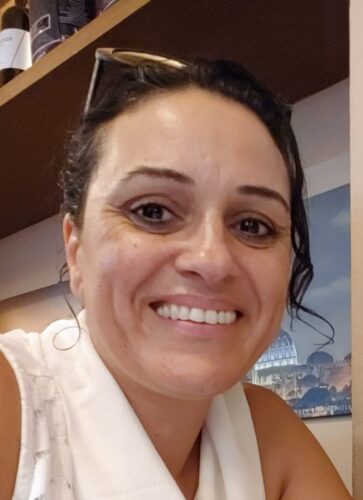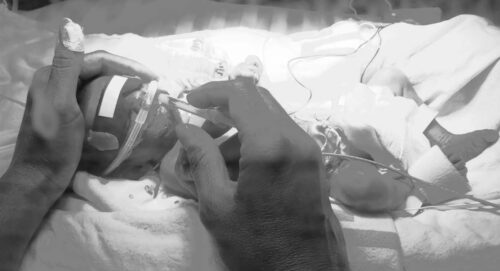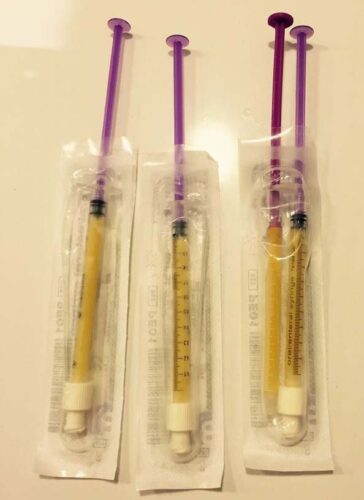
Supporting breastfeeding has always been a top priority in our NICU at Meir Medical Center in Kfar-Saba, Israel.
We are lucky enough to have seven nurses who are certified Lactation Consultants. Throughout the infants’ hospitalization we support mothers for milk expression, and later on, for breastfeeding. We guide and support them to overcome challenges with pumping, and encourage them to monitor pumping frequency and daily breastmilk output during the critical first hours, days and weeks after birth. It proved helpful for the whole process, that both mothers and staff be fully aware of important milestones, e.g., the first days of primary milk (colostrum) production; the initiation of more mature breastmilk production around 3-4 days after birth; the expectation of about 550-750 ml of breast milk per day at approximately 14 days after birth. This increased awareness helps all parties involved (parents and staff) to more readily identify difficulties, to celebrate successes, and to individualize the support given to mothers.
About three years ago we carefully reviewed our guidelines regarding breast milk expression and breastfeeding, only to identify some missed opportunities along this delicate process. We then decided to launch a collaborative project with our “neighbors”, namely, the Delivery Room (DR) and the High-Risk Pregnancy (HRP) units in our Hospital. The NICU’s lactation consultants brainstormed and consulted the literature, in a search for fresh ideas to better structure the essential phases of what we now refer to as “The Milky Way”.

It is well acknowledged that different factors can delay or alter the process of milk production and secretion (e.g., preterm birth, C-section, maternal morbidities, faulty pumping management, mother’s emotional state). While many of these factors are not under our control, some of them are. In fact, we caregivers are quite in a good position to contribute to the mother’s success. Appropriate guidance, encouragement, support and empowerment can help mothers find the strengths to endure in the process, both during hospitalization and after discharge home.
But where does this guidance and support begin? The answer to this question surely transcends this modest blog. Social influences, personal background, maternal beliefs, as well as many other factors may influence a mother’s approach towards breastfeeding. And yet, as far as we – healthcare providers – were concerned, we realized that there were several interventions still to be implemented.
In order to upgrade “The Milky Way”, a whole new set of inter-ward collaborations was introduced. This has been a most rewarding process, as a closer partnership with these units was achieved, with the ultimate goal of improving breast milk provision to preterm infants in the NICU. Thinking back, it seems that some of the most remarkable milestones in this collaborative effort were:

- Collaboration with the Delivery Room ward, by means of in-service training sessions to midwives, about the importance of early breast stimulation and squeezing. It became a much more common sight, to see a midwife bringing colostrum drops to the NICU soon after a preterm infant is born.
- Close collaboration with the HRP ward, by means of joint study sessions to increase awareness about the importance of early milk expression among the staff.
- Basic training to HRP staff about manual expression of colostrum, including the use of an expression kit with a written guide for early breast squeezing, which allows the mother to start to simulate the breast very soon, even before meeting a NICU breastfeeding consultant
- Earlier reaching out to mothers of preterm infants by NICU lactation consultants, both before birth and soon after it.
- A more proactive involvement of the mother’s partner, as a critical supporter of the mother’s initial efforts in colostrum and breastmilk expression. Another common sight nowadays, is a partner who brings in colostrum drops to the NICU, a few hours after birth.
- Empowerment, encouragement and heartfelt admiration form the NICU staff, for every drop of colostrum and early breast milk that is brought in by parents for their preterm infant.
As a Nurse and Lactation Consultant, I feel delighted to notice changes that have taken place along “The Milky Way”. Early reach out, together with timely and sensitive consultation and guidance, have proven beneficial. Parents providing breastmilk for their preterm infant has increased.
What a fulfilling way to transit “The Milky Way”!
– Eti Greenberg, RN, Lactation Consultant
NICU, Meir Medical Center
Israel NIDCAP Training Center
Kfar Saba, ISRAEL
